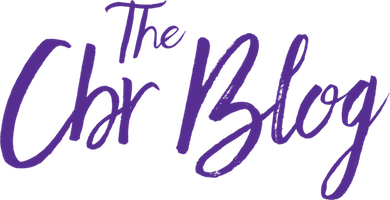Does being pregnant change a mom’s brain? All signs point to yes – structurally and functionally.[1] “Mommy brain”, or pregnancy brain, which often refers to the not-so-positive aspects of pregnancy (like sleepiness and forgetfulness), actually should refer to the brain’s positive makeover. There are many biologically encouraging changes going on during pregnancy and after birth that actually expand a woman’s brain size, increase activity in key areas and trigger the age old bond between a mother and her child. There’s nothing else like it.
The “mommy brain” transformation starts soon after conception. Both the mother’s and baby’s brain and body are exposed to increased hormones secreted in pregnancy. Oxytocin levels also dramatically increase, activating the “maternal instinct” and creating that feeling of “falling in love” with your baby.[2] As if that’s not pregnancy at its finest, the size and structure of the brain change too! Between the sixth month of pregnancy and the end of pregnancy, MRI brain scans have shown that a pregnant woman’s brain actually shrinks.[3] The brain then gradually returns to original size by six months after giving birth,[4] and even grows in certain areas.[2] Researchers believe that this helps prepare a woman for her new role as a mother. Animal studies suggest the maternal brain also develops better spatial memory, and is more flexible, adaptive and courageous.[5] With all this positivity, we should all be so lucky as to experience “mommy brain.”
Scientists still don’t know exactly why all these changes happen during pregnancy, but it seems to indicate massive brain restructuring and metabolic changes are occurring. Some scientists believe, based on animal studies, that the pregnant mother’s brain shrinks because of all the cellular changes required to restructure the brain’s pathways.[6] Pregnancy hormones prime the brain to be open to this restructuring even after a newborn arrives.[7] And while it’s not yet clear whether the changes in a mother’s brain stimulate her to care for her child, or whether caring for a child changes the brain, studies show a relationship.[7] What is certain? Once a mother, life as you know it – and your brain – will have had an incredible makeover.[7]
- Lonstein, J.S. (2005) “Reduced Anxiety in post-partum rats requires recent physical interactions with pups, but is independent of suckling and peripheral sources of hormones.”Horm Behav 47 (3): 241-55. O’Day, D.H., M. Lydan, et al. (2001). “Decreases in calmodulin binding proteins and calmoduline dependent protein phosphorylation in the medical preoptic area at the onset of maternal behavior in the rat.” J Neurosci Res 64 (6) 599-605. Morgan, H.D., A.S. Fleming, et al. (1992). “Somatosensory control of the onset and retention of maternal responsiveness in primiparous Sprague-Dawley rats.” Physiol Behav 51 (3): 549-55.
- http://www.theatlantic.com/health/archive/2015/01/what-happens-to-a-womans-brain-when-she-becomes-a-mother/384179/
- Oatridge, A., A. Holdcroft, et al. (2002).“Change in brain size during and after pregnancy: Study in healthy women and women with preeclampsia.” AJNR AM J Neuroradiol 23 (1): 19-26.
- Furuta, M. and R.S. Bridges (2005). “Gestation-induced cell proliferation in the rat brain.” Brain Res Dev Brain Res 156 (1): 61-66.
- http://news.discovery.com/human/psychology/mommy-brain-maternal-changes.htm
- Bodensteiner K.J., P. Cain, et al. (2006). “Effects of pregnancy on spatial cognition in female Hooded Long-Evans rats.” Horm Behav 49 (3): 303-14. Lambert K.G., A.E. Berry, et al. (2005). “Pup exposure differentially enhances foraging ability in primiparous and nulliparous rats.” Physiol Behav 84 (5): 799-806.
- Pawluski, J.L. and L.A. Galea 2006 “Hippocampus morphology is differentially affected by reproductive experience in the mother.” J Neurobiol 66 (1): 71-81.


